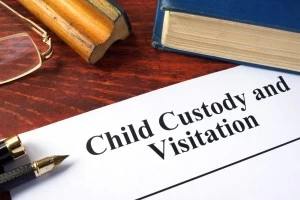The Basics of Visitation Violations in Georgia
In Georgia, child custody is most often determined during the divorce process by mutually agreeing parents, subject to a judge’s approval, or by the judge based solely on the child’s best interests. The resulting custody order is a complex document, covering many important things, including visitation. The custody order, referred to as a parenting plan, will dictate which parent has legal and physical custody and will contain a detailed visitation schedule. Absent a formal agreement by the parties, the visitation order must be followed by both parents and cannot be officially modified without a judge’s approval. How can visitation orders be violated? There are several ways a parent can potentially violate a visitation order. Blocking or withholding visitation is a violation that occurs when a parent makes a child unavailable for visitation by scheduling other activities during the court-ordered visitation time or otherwise making the child unavailable for visitation. Denying visitation for non-payment of child support is also a violation. Visitation and child support are two separate matters, and non-payment does not justify withholding visitation. Failing to show up or consistently or arriving late to scheduled visitations is a violation that could result in limited future parenting time. Blocking communication, including hindering phone calls, text messages, or emails between the other parent and the child, may also be a violation depending on the specific language of the parenting plan order. What if my child is refusing to visit the other parent? If your child refuses to cooperate with visitation, you could be found in contempt of court. It is your duty to prove to the court that you are following the court’s orders to the best of your ability even though the child will not cooperate. In Georgia, if the child is over the age of 14, they may have the right not to visit the non-custodial parent, but the motive behind the refusal remains subject to review, and the court ultimately still decides what is in the child’s best interest. While a court may be sympathetic when a parent cannot get a teenager to cooperate, parents of younger children are responsible for ensuring that visitation occurs. If your child won’t cooperate with court-ordered visitation despite your best efforts, the best thing you can do to protect yourself is immediately communicate the issue with the other parent (and/or your attorney) and document the details of the incident. If you have concerns that your child is refusing visitation due to abuse, you should contact your attorney immediately. What happens if a visitation order is violated? In Georgia, if a parent violates a custody or visitation order, the other parent can file a motion requesting the court to hold the violating parent in contempt. Exact proceedings depend on the county in which the parents reside. The parent filing the motion must serve the other parent and then the court will set a hearing date. If a visitation violation has been proven, the judge may order make-up visitation, parenting classes for the offending parent, changes to the child’s transportation arrangements, or in the case of serious and ongoing interference, order fines and/or jail time. The court can also order the offending parent to pay any costs resulting from the interference, including legal fees. At the contempt hearing, the judge can order visitation changes, but cannot order a change in custody. If there are grounds for a change in custody, such as the custodial parent consistently interferes with visitation, the non-custodial parent must bring a separate motion to modify the custody order. Matters regarding child custody and visitation can be very complicated and quite delicate. If your ex is violating a custody or visitation order, it is advisable to seek experienced legal counsel immediately. At Andersen, Tate & Carr, our team of knowledgeable and skilled child custody attorneys, led by Patrick McDonough and Trinity Hundredmark, have years of experience handling all types of child custody cases. We have helped countless clients receive desirable outcomes in various matters involving custody and visitation. We will work tirelessly to ensure that your rights are protected and that you are not unfairly treated at any point during your child custody process. Contact us today at 1-770-822-0900 for a case evaluation.


